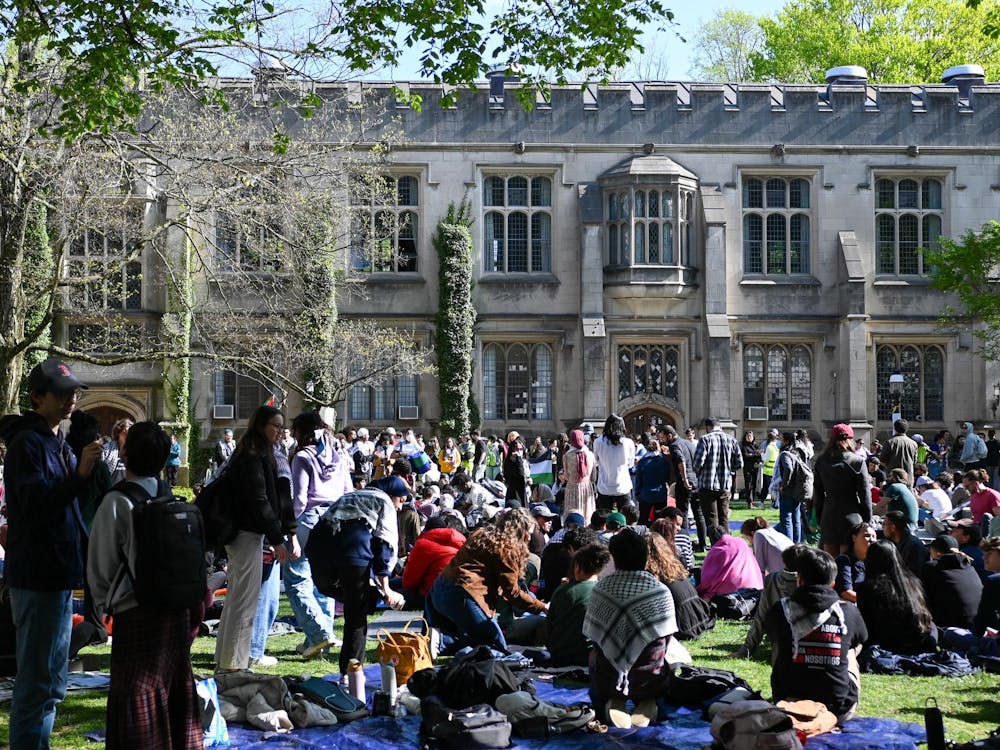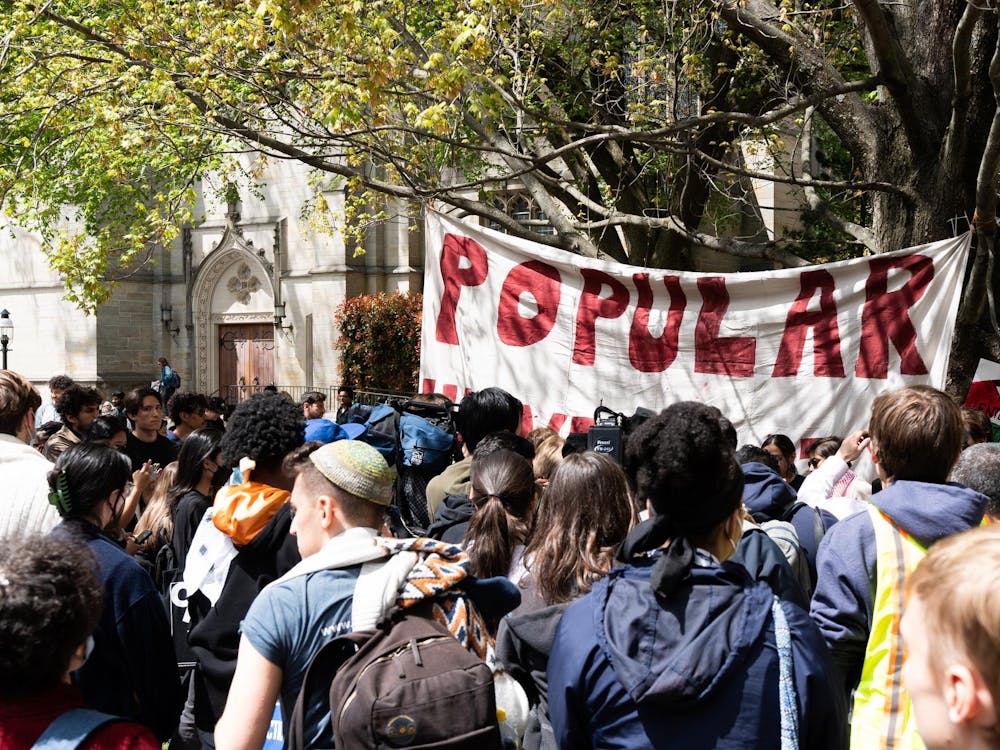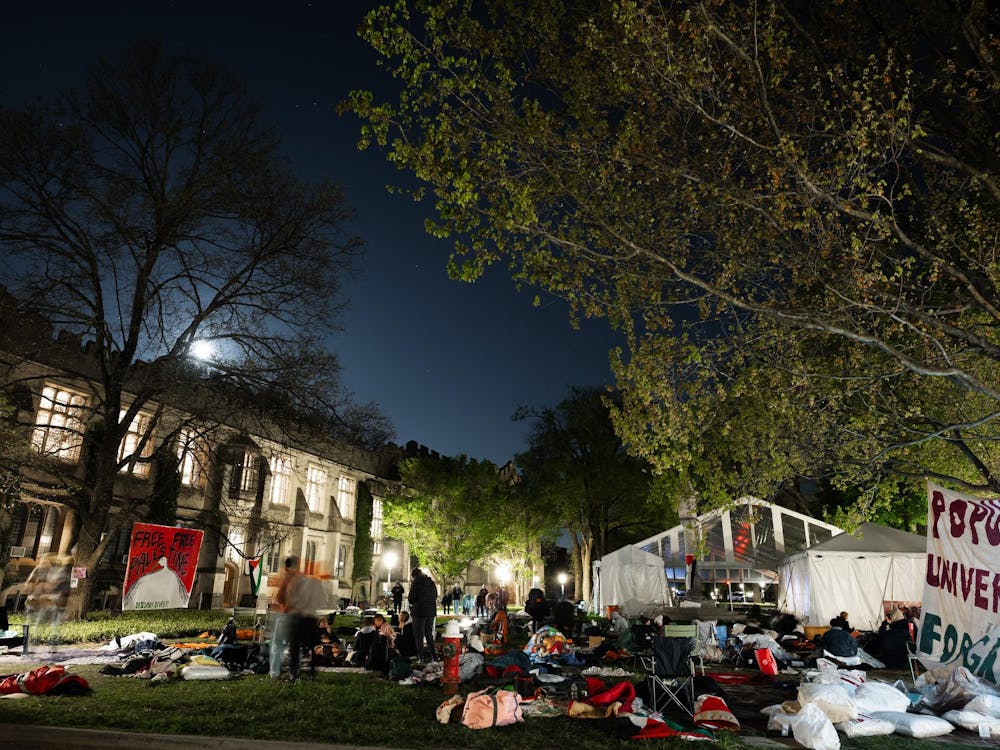This week’s meeting of the Undergraduate Student Government featured debate on a wide range of amendments, as USG worked to wrap up new business for the spring.
USG President Myesha Jemison ’18 opened with her report to the committee, which detailed upcoming meetings with administrators and student groups, as well as the interview process for the Honor Committee, which will commence tonight.
U-Councilor Pooja Patel ’18 presented the upcoming “Get Yourself Tested” initiative, a partnership between USG and Princeton Students for Reproductive Justice. Running from 8 p.m. to 10 p.m. on Monday, May 1, the event will inform students on how to schedule appointments to get tested for STIs and generally provide information about University Health Services and STI testing at Princeton.
Campus and Community Affairs Chair Christine Jeong ’19 spoke about Communiversity and Restaurant Week, noting that they had reached out to 44 restaurants and had finalized deals with five of them. Jeong noted that participation in Restaurant Week is often lower in the spring but was confident that several other restaurants would agree to participate.
USLC Chair Tania Bore ’20 then introduced the return of “The Other Side of Me” photo campaign, tentatively scheduled for reading period. Vincent Po ’18 discussed the details of the previous campaign, and encouraged USG to participate in the new version, especially if they hadn’t participated in the last round.
Class Senator Andrew Ma ’19 once again introduced an amendment to the USG Senate Constitution, which would require a two-thirds majority vote for appointments to the Honor Committee and the Committee on Discipline. The amendment, which has been discussed at meetings for several weeks, was put to a final vote today to satisfy requirements for passage.
According to the constitution, amendments to the Senate Constitution require two separate votes at different weekly meetings. Since the amendment was approved at the last meeting, this vote served to solidify support for the amendment and put it into effect. The new rules will apply for upcoming appointees to the Honor Committee, who will be interviewed and selected starting tonight.
Ma and Academics Chair Patrick Flanigan ’18 then reintroduced another proposed amendment to the constitution. This amendment would modify requirements for referendum submission and approval as outlined at last week’s meeting.
Flanigan opened the discussion of the proposal.
“The thing that just absolutely drives me crazy, and is a conundrum to me, is that the ‘no’ votes count towards making something count," he said. Currently, the constitution requires both that one third of the student body vote on the referendum and that a simple majority of those votes be for rather than against the proposal. The new policy requires that one sixth of the student body vote in favor of the proposal and maintains the majority requirement for passage. The change is intended to correct a mechanism where not voting could be more advantageous than voting against a proposal.
Several members expressed confusion about both the current and proposed mechanism for referendum voting, prompting vigorous discussion of both policies.

“You should think of it as two separate systems that the referendum has to pass,” Flanigan said in response to several questions about the proposal.
The senate then debated the second part of the amendment, which would change the signature requirement for referenda from 10 percent of the student body to a flat number of 200 students. Several members also noted that the sponsorship of eight members of the senate is sufficient to put a referendum on the ballot and questioned whether the current 10 percent requirement is too large a burden given this fact.
The first vote on this proposal, originally scheduled for this week, was postponed as discussion of the amendment took up much of the allotted meeting time. While Ma and Flanigan originally expressed a willingness to entertain changes to the proposal, the group agreed that these issues should be resolved before the first opportunity for referenda in fall 2017.
“If you have other suggestions, you are welcome to draft your own amendments, or to give me and Patrick [Flanigan] feedback. I want this to be ready for the start of the fall semester,” Ma said.
Finally, a committee presented its final report on the eating club referendum passed last semester. The group, which previously announced the formation of a subcommittee to interact with the eating clubs, also explained that they would not be collecting demographics as proposed in the referendum, citing a conversation with Graduate Inter-Club Council Chair Tom Fleming ’69. Several members of the group expressed disappointment with this result, asking for details on the demographic collection process.
In notes provided to those in attendance, Fleming said that the clubs have not provided members' demographic information and so they cannot provide this data.
"The University is unable to share personally identifiable information with us or the community," Fleming said in the notes. "In addition, I gather [that] their practice is not to publicize aggregate demographic data for students involved in various activities."
“To me, the two reasons don’t seem to me the most valid … is this firm now, that you’re not going to do it?” U-Councilor Michael Asparrin ’19 asked.
“We’re also extremely frustrated by this response,” U-Councilor Olivia Grah ’19, a member of the eating club referendum committee, responded.
Finally, Social Committee Chair Lavinia Liang ’18 presented updates for Lawnparties, discussing increased availability of food and coordination with eating clubs.
The meeting took place at 5 p.m. in Frist Multipurpose Room B.








